You may think healthcare is safe from the takeover of Artificial Intelligence (AI). You may believe that as long as you do not drive a truck or work in a factory, you have nothing to worry about. The skills you learned in training will be enough for the rest of your healthcare career, right?
But healthcare is not as safe as it seems – just ask a radiologist. In early 2020, Google announced an AI system able to read mammograms better than radiologists. And as AI learns more, radiologists will have to look at what other skills they have to stay relevant.
The key for everyone working in healthcare is to continue learning new skills. And there are some essential skills that robots will not takeover any time soon.

Healthcare is still a good industry to be in.
It is discouraging to hear how many jobs may be automated in the future. One estimate from researchers at Oxford say as much as 47% of US jobs are at risk.
We are living through another industrial revolution – this time with intelligent machines. But, what makes this different is changes are happening faster and benefits are unequal. In the past, when a new industry replaced an old one, it brought new jobs. It was easier for workers from the old industry to move to the new one with the skills they already had.
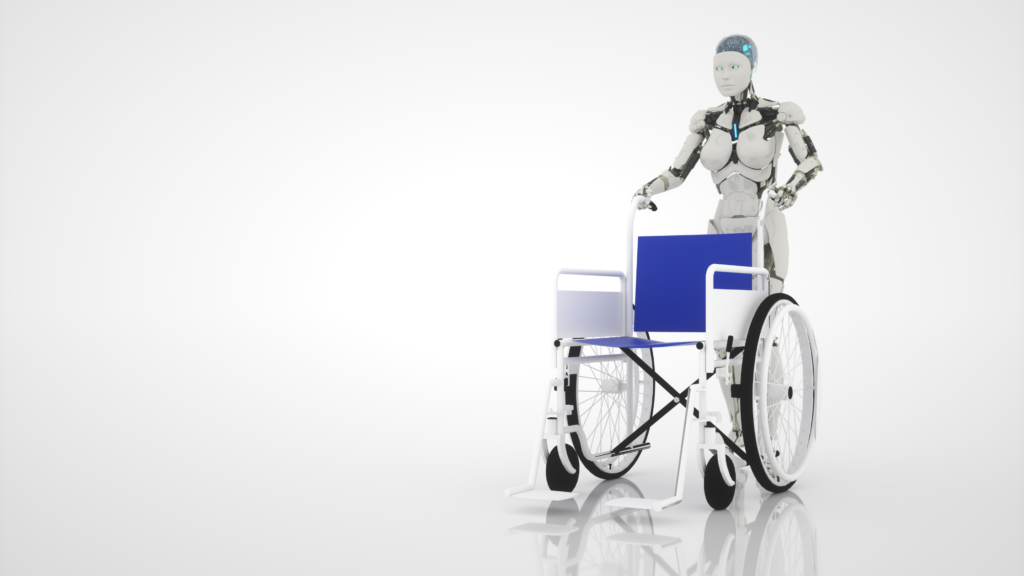
With AI, there are also new jobs being created. But these jobs require more education and skills than in the past. In the middle of all of this, healthcare is still the best place to be for two reasons:
Reason #1: Healthcare as an industry will continue growing, adding 4 million new jobs through 2022. This is because of the aging population – think of all those Baby Boomers qualifying for Medicare. People are also living longer with chronic illnesses, and there are new treatments and technology extending life.
Reason #2: There is a shortage of healthcare workers that is only getting worse. By 2025, the World Health Organization expects a shortage of 124,000 doctors and 500,000 nurses. Japan is working on robot technology to assist the elderly because the healthcare worker shortage there is even worse.
Digital health technology is creating new jobs and new specialties. The need for informatics nurses, clinical data managers, and bioinformatic technicians is expected to grow well above average.
All of this means that healthcare is good industry to be in for the future because it is growing instead of shrinking. But, there are healthcare jobs that are easier to automate, and those jobs are at risk.

Which healthcare jobs are at risk?
You can automate any well-defined problem. That means you can teach a machine any task with a defined set of steps and a certain number of decisions. This is already happening in many industries.
For example, a company called Work Fusion helps other companies automate their business processes. They do this by having AI do routine work, and hiring freelancers to handle non-routine work. But, here is the twist: the AI watches the freelancers and learns how they perform their tasks too.
With AI able to learn, it is able to replace what is called knowledge work – work that requires critical thinking and problem solving skills. Here are some examples of healthcare jobs at risk:
Customer service: Technology called ‘natural language processing’ allows computers to understand human speech. This allows machines to take over call center jobs.
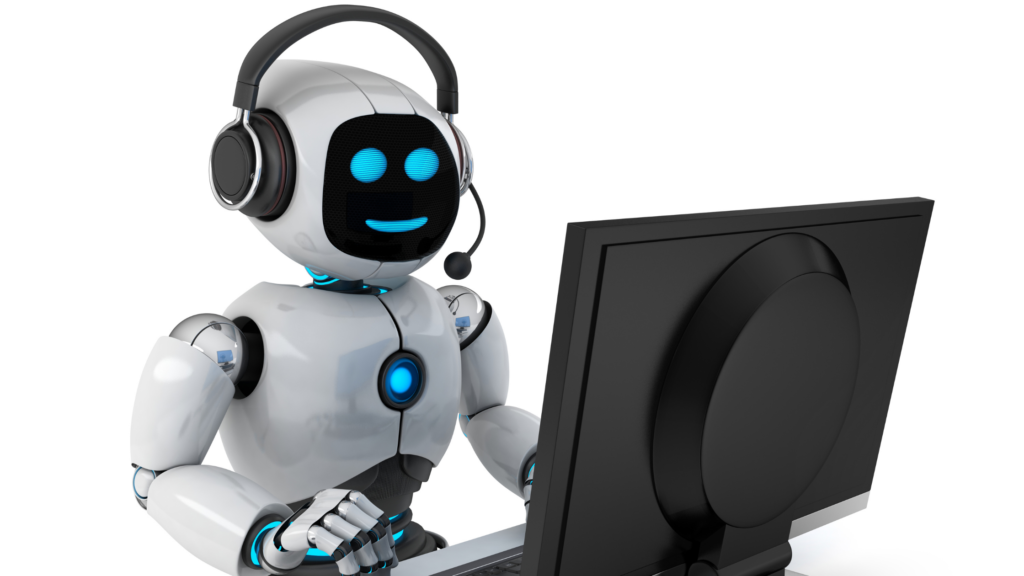
Medical transcription: There is already software that lets doctors simply talk with patients while the AI takes notes and creates prescriptions from the conversation.
Diagnostic medicine: Machines with access to patient data, disease information, and the right algorithms are able to diagnose as well as physicians. This means non-specialist doctors may see fewer job opportunities in the future. Nurse practitioners and physicians assistants may take over these roles with the help of AI.
This is not an exhaustive list of healthcare jobs that machines can do. But it gives a sense of what is at risk of automation right now. As technology improves, more jobs may be at risk, which is why healthcare workers must continuously learn new skills.

What skills are needed for healthcare jobs of the future?
What skills are hard for machines to learn? Creativity and social skills. Yes, the skills you learned in kindergarten are the ones that will keep you employed through retirement.
Skill area 1: Creativity
Creative skills for the healthcare job market go beyond what you learned from finger painting and Play-Doh. This type of creative work means being able to come up with new ideas without direct instruction. It also means being able to build something out of those ideas.
We can break creativity down further into the following skills:
Skill #1 – Complex problem solving: This involves finding creative solutions to problems that have not yet appeared. Machines are not easily able to predict problems that have not happened yet, especially not in the complicated world we live in.
For example, maybe you realize a coming snow storm combined with a transit-worker strike will make it hard for your patient to get her medications. So you make sure she has 3-months worth of her prescriptions, or you sign her up for home delivery, or maybe both. A machine would have trouble putting all of those factors together.
By thinking ahead and imagining problems that have not yet occurred, you are offering something a machine cannot.
Skill #2 – Critical thinking: This means doing more than ‘checking the box.’ Simply going through the motions each day and not putting thought into your work will not be enough. Instead, critical thinking involves looking at the information you have for a deeper understanding.
Using the same example above of the patient getting her medication, maybe you noticed she skipped a few refills. Maybe you see her condition is getting worse, and she does not come to the pharmacy as often. A critical thinker would ask her what is going on to get more of a picture.
Maybe it is not the snow storm and transit strike. Instead she has a new medication that gives her headaches so she avoids going out. A critical thinker would get that understanding so they can solve the right problem.
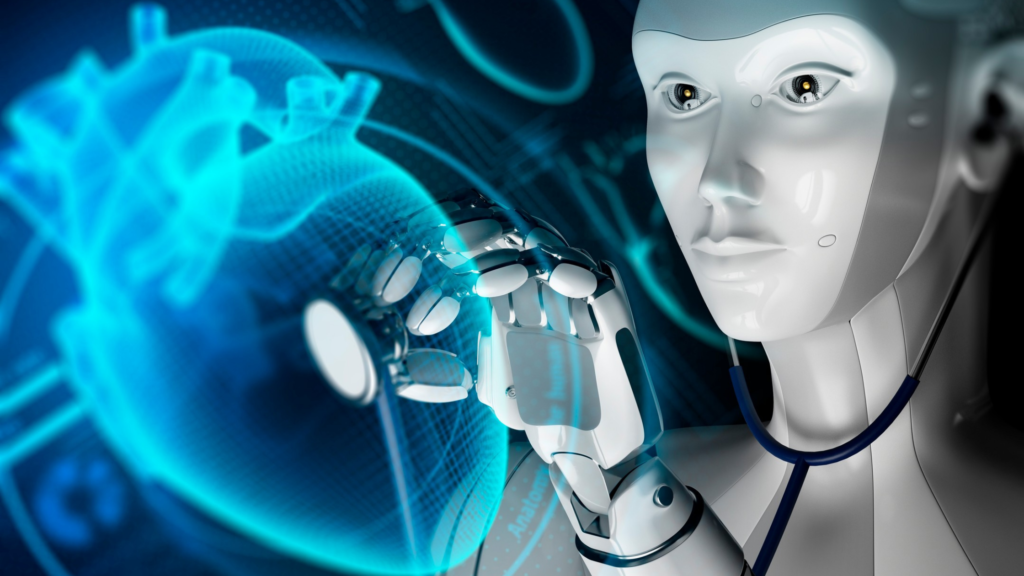
Skill #3 – Negotiation: It may seem strange to say ‘negotiation’ is a creative skill. But it does involve coming up with solutions to problems. There are negotiations that happen all the time in healthcare:
- The therapist who thinks a client is ready to be more independent.
- The pediatric nurse with a child who does not want to give a blood sample.
- The cardiologist whose patient does not want to stop smoking.
Creative negotiation involves seeking win-win solutions. Without creativity, you can end up damaging relationships you need in the future.
Skill #4 – Originality: At this point, machines are not able to invent new ways to solve a problem. They have to be pre-programmed. This is where creative human beings have an advantage. We are able to come up with ideas other humans (and machines) have not thought of.
Skill area 2: Social skills
Maybe you have heard of people with high ‘social intelligence.’ That means a person who is able to understand social and cultural context, and connect with others who are not just like them.
This is very difficult for a machine to do because it requires being able to pick up on very subtle queues. Humans do not even always pick up on these things – think of all the times you hear someone put their foot in their mouth!
We can break social intelligence skills down into the following areas:
Skill #5 – People management: Being able to effectively manage a team, build talent, and get people to work together involves a set of skills that many humans have not mastered. The factors involved in managing other people are complex. Fortunately, that also means it is hard to automate.
Skill #6 – Coordinating with others: While machines can offer data and information, at this point they cannot get human beings to work together. Coordinating with others includes ‘influencing’ – getting other people to work towards a goal because they are excited to be part of it. Communicating an idea in a way people get excited about is a uniquely human skill.
Skill #7 – Emotional intelligence: This includes empathy, curiosity, and the ability to identify with other people.
Skill #8 – Service orientation: This means offering value and trying to help other people. You may see that and remember customer service jobs are at risk. So why is this a skill to focus on? Service orientation involves understanding the other person’s wants and needs, and figuring out ways to meet those. It means looking for opportunities to help that are not pre-programmed.
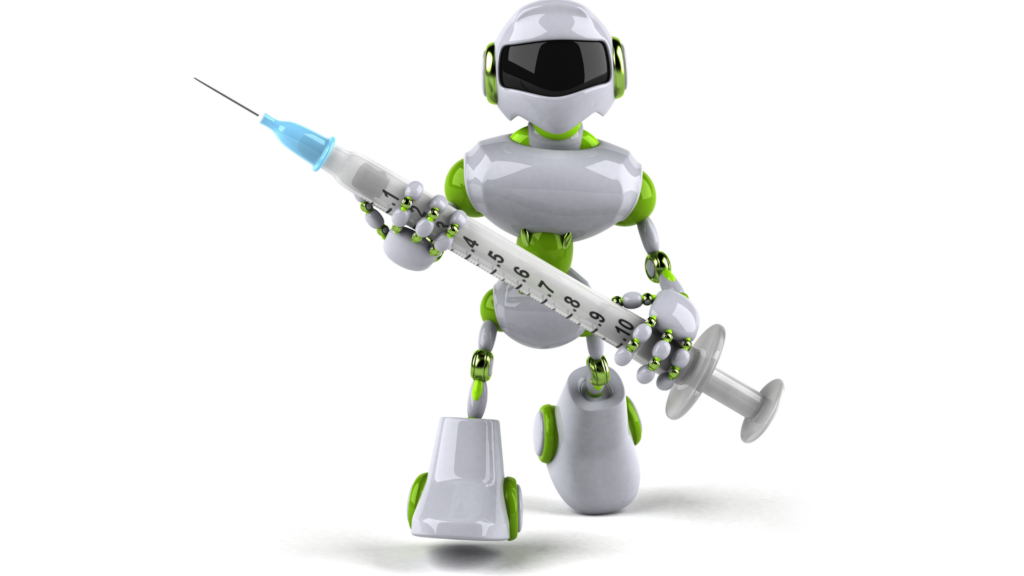
Of all of these skills, the best combination is originality and service orientation. It is very hard to automate jobs that require coming up with new ideas and interacting with other people.
If you are a nurse or a therapist you may be jumping for joy right now. Just remember these are only some of the skills you will need. If you work on these skills, technology will help you with your job instead of replace you. But that does mean there will be new technologies in the future you will need to learn about.
So, that is only 8 of the promised 9 skills. We saved the most important for last.

The single most important skill to not be replaced by robots:
Keep learning! Everything I researched to write this post said continuing to learn was the top skill.
For our parents, whatever they learned in high school and college was enough to last their whole working life. But that is not true anymore. You will have to learn new skills throughout your career.
And even if your job does not require it, consider going to graduate school. The fastest growing part of the job market is in areas that require a master’s degree.

Key takeaways:
Healthcare is not safe from automation. Even well-educated workers like radiologists are in danger of being replaced by machines. While healthcare is a good industry to be in because it is expected to grow, there are still jobs that are at more risk than others.
The key skills healthcare workers should build to not be replaced are:
- Creativity:
- Complex problem solving
- Critical thinking
- Negotiation
- Originality
- Social skills:
- People management
- Coordinating with others
- Emotional intelligence
- Service orientation
But the one most critical skill is to continue learning. Everyone should expect learning to be part of protecting their career.


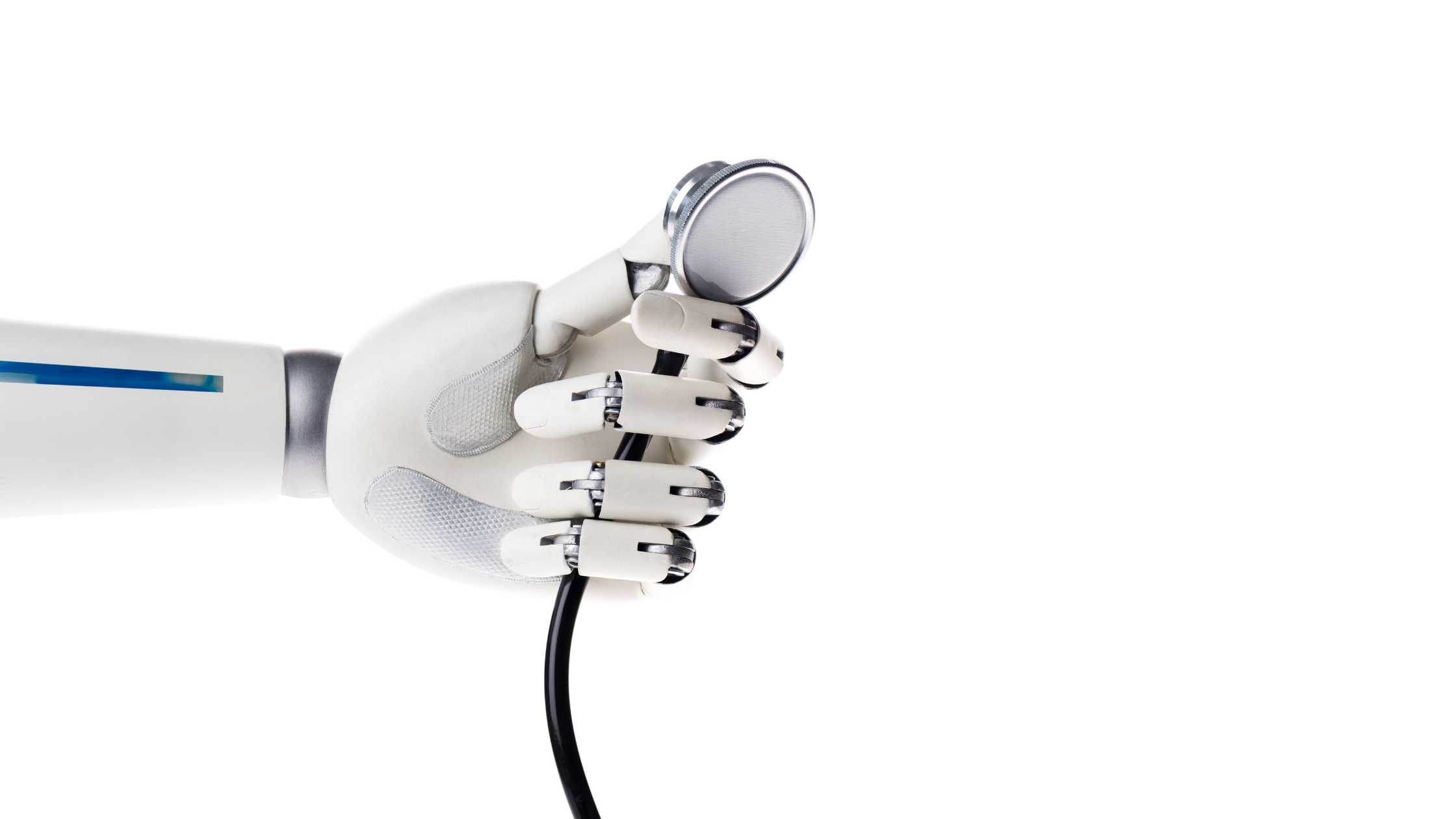
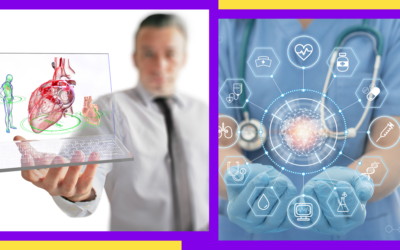


I found this post very informative and am happy I read it! It was interesting to learn that radiologists seem to have a high risk of losing their jobs to AI. While reading this and the skills you suggested to help keep health care jobs, the ones in the social skills category stuck with me. I plan to become an athletic trainer in the future, and I feel emotional intelligence is going to be a big skill that I need. Along with this, I feel I’ll need the service orientation skill.
Thanks for commenting, Sophia! That is a great career goal, and I agree – emotional intelligence and service orientation will be the big skills needed there. The good thing is that those are skills that are hard to automate, so you will have a nice long career as an athletic trainer. Best of luck to you!
This article really gave me a lot of information and helped me with the things that I need to do in order to not be replaced by an AI. This included critical thinking, problem solving, negotiation skills, and people management skills. I agree with all of these because if you have all of these skills, there is no other benefit that an AI would have if you are doing everything that you are supposed to do at your best ability.